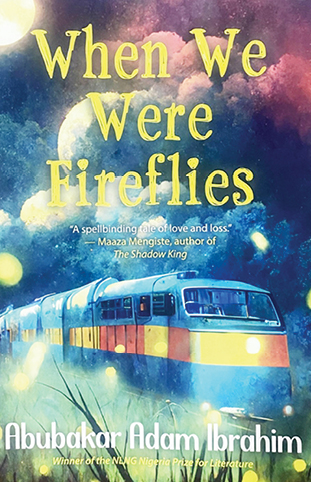Nothing is as it seems in Abubakar Adam’s ‘When We Were Fireflies’
As readers dive deep into his latest tale, Abubakar Adam Ibrahim desires for the audience to understand the many complexities of life and that nothing is ever as it seems in one’s rearview. His newest release ‘When We Were Fireflies’ is a twisted tale of love, violence, hate, grief and the possibilities of reincarnation. Speaking […]

As readers dive deep into his latest tale, Abubakar Adam Ibrahim desires for the audience to understand the many complexities of life and that nothing is ever as it seems in one’s rearview.
His newest release ‘When We Were Fireflies’ is a twisted tale of love, violence, hate, grief and the possibilities of reincarnation.
Speaking at his book reading, Ibrahim said that “A lot of deep emotions and situations we often encounter in life are explored in this book. However, the book gives room for one to understand that people deal with situations differently and always have a reason for their actions even when it may seem out of place or character.”
He also said the book goes on to explore the symbiotic relationship Nigerians have had with love, hate and violence over the past years.
- Kogi Gov, SDP Guber Candidate Trade Blame Over Attack
- Subsidy removal: FG must commit to ameliorative policy
Speaking on the book, fellow writer and fan of Ibrahim’s works, TJ Benson said the compassion Ibrahim expresses in the book through his characters is what makes the book fascinating for him.
He said; “Adam writes with so much compassion; so much so you begin to think the story, character is real. It’s what keeps the reader going with the hope that things get better for the character in context.”
Another reader, Zahra Umar, mentioned that what she admires most is the love story that transcends over time between two characters in the tale.
“There are two characters in the book whose love is seen to transcend through time, and to me, I find it so touching to think that one can experience such purest form of love. I also enjoyed how issues such as grief were handled in the book as it is one emotion we, as human beings, make a habit of keeping in denial,” Zara said.
